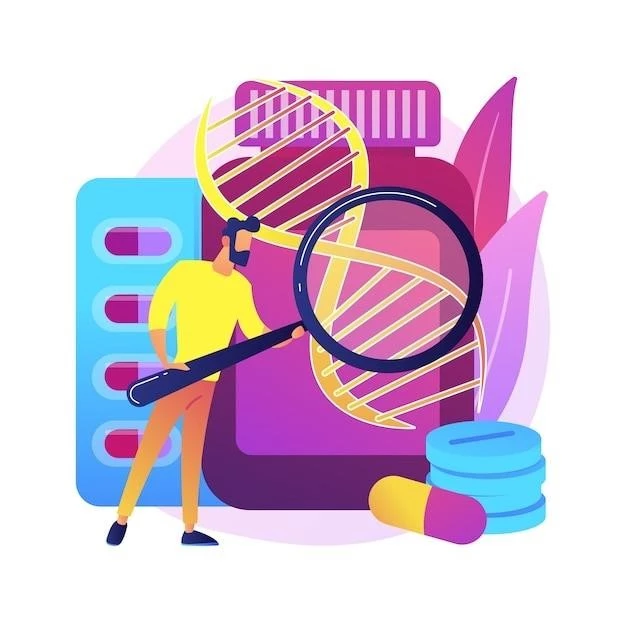Understanding Chromosome 14q Terminal Duplication⁚ In-depth exploration of the condition․
Overview of Chromosome 14q Terminal Duplication
Chromosome 14q terminal duplication is a rare genetic disorder characterized by an extra piece of genetic material present at the end of the long arm of chromosome 14․ This duplication can lead to a variety of developmental delays, intellectual disabilities, and physical abnormalities․ Understanding the specific effects of this genetic anomaly is crucial for proper management and care of individuals affected by it․
Symptoms and Diagnosis of Chromosome 14q Terminal Duplication
Identification of key symptoms and methods for diagnosing this genetic condition․
Common Symptoms of Chromosome 14q Terminal Duplication
Common symptoms include growth delays, intellectual disabilities, distinctive facial features, seizures, heart defects, and skeletal abnormalities․ Individuals may also experience delays in speech and motor skills development․ Recognizing these symptoms is vital for early detection and intervention․
Diagnosis of Chromosome 14q Terminal Duplication
Diagnosis involves genetic testing, chromosomal analysis, and clinical evaluation․ A thorough examination of the individual’s symptoms and medical history is crucial․ Additionally, imaging studies such as MRI or CT scans may be used to assess any associated physical abnormalities․ Early and accurate diagnosis is essential for implementing appropriate treatment strategies․
Treatment Options for Chromosome 14q Terminal Duplication
Exploration of available medical interventions and therapeutic approaches for managing the condition․
Medical Interventions and Therapies
Treatment may include early intervention services, speech therapy, physical therapy, special education programs, and surgical interventions to address specific physical abnormalities․ Additionally, ongoing medical monitoring and multidisciplinary care are essential for individuals with chromosome 14q terminal duplication to optimize their overall health and well-being․
Genetic Counseling for Families with Chromosome 14q Terminal Duplication
Guidance and support for families to understand the genetic implications of the condition․
Role of Genetic Counselors
Genetic counselors play a crucial role in educating families about the inheritance patterns, genetic risks, and available testing options related to chromosome 14q terminal duplication․ They provide emotional support٫ facilitate informed decision-making٫ and guide families in accessing appropriate medical and community resources․ Genetic counseling helps families navigate the complexities and uncertainties associated with the genetic condition․
Research Advances in Chromosome 14q Terminal Duplication
Exploration of the latest scientific studies and breakthroughs in understanding the genetic anomaly․
Current Research Studies and Findings
Ongoing research aims to enhance our understanding of the genetic mechanisms underlying chromosome 14q terminal duplication and to develop targeted therapies that address specific symptoms and complications associated with the condition․ Recent studies focus on identifying potential treatment options, improving diagnostic methods, and exploring the long-term implications of this rare genetic disorder․
Prognosis and Long-Term Outlook for Chromosome 14q Terminal Duplication
Evaluation of the expected course of the condition and its impact on long-term health․
Factors Affecting Prognosis
The prognosis of chromosome 14q terminal duplication can vary based on the extent of genetic material duplicated, the presence of associated health issues, individual response to treatments, and access to comprehensive care․ Early intervention, ongoing medical monitoring, and family support can significantly influence the long-term outlook for individuals with this genetic condition․
Support Groups for Individuals with Chromosome 14q Terminal Duplication
Community networks providing assistance, understanding, and solidarity for affected individuals․
Community Support and Resources
Support groups offer emotional support, information sharing, and a sense of community for individuals and families affected by chromosome 14q terminal duplication․ These groups provide a platform to exchange experiences, access resources, and connect with others facing similar challenges․ Additionally, online forums and educational materials serve as valuable resources for navigating daily life with this genetic condition․

Educational Resources for Chromosome 14q Terminal Duplication
Informative materials and tools to aid in understanding and managing the genetic condition․
Informative Materials and Tools
Educational resources include brochures, online articles, webinars, and genetic counseling services․ These materials aim to educate individuals, families, and healthcare providers about chromosome 14q terminal duplication٫ its symptoms٫ diagnostic procedures٫ treatment options٫ and available support networks․ By enhancing knowledge and awareness٫ these resources empower stakeholders to make informed decisions and improve the quality of life for those impacted by this genetic condition․
